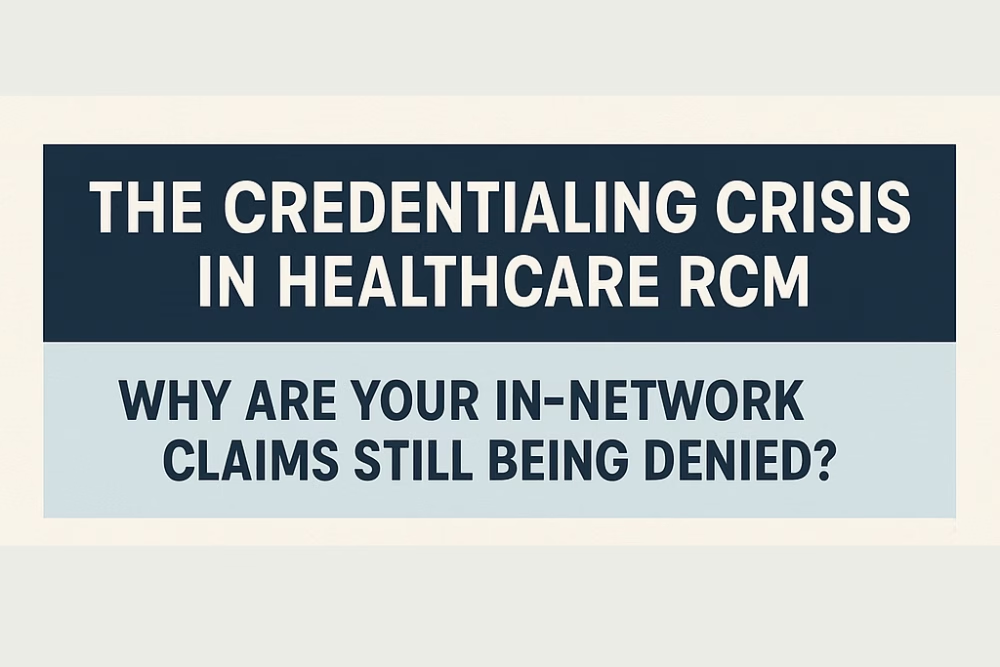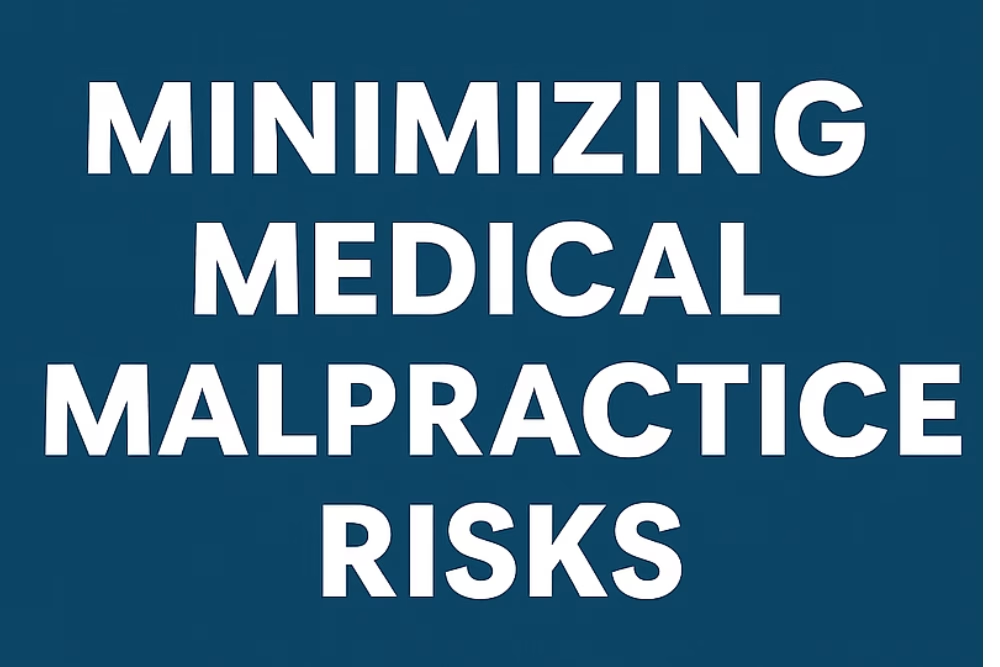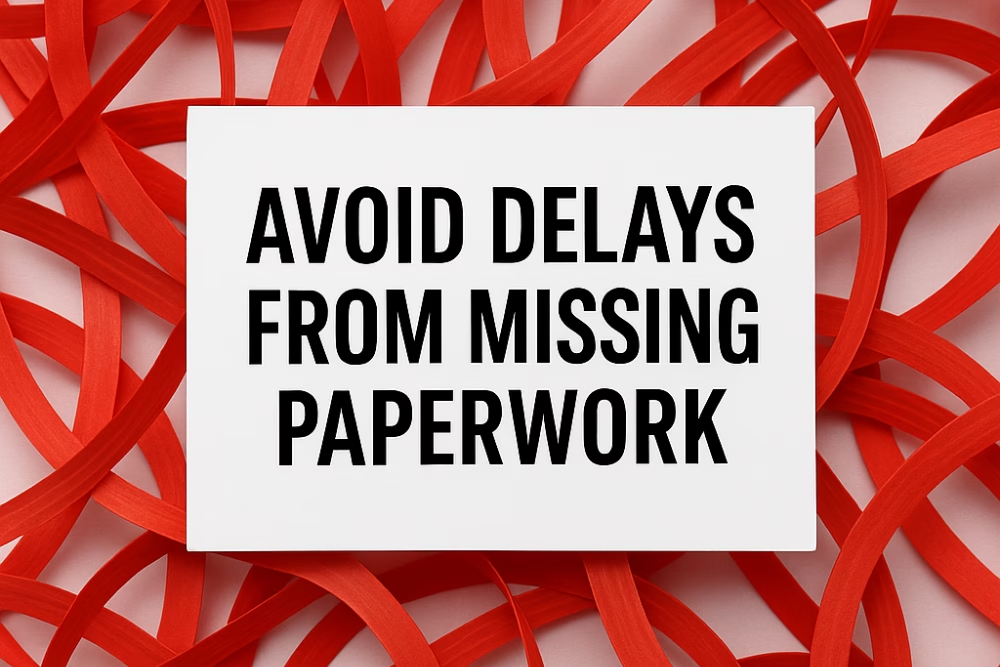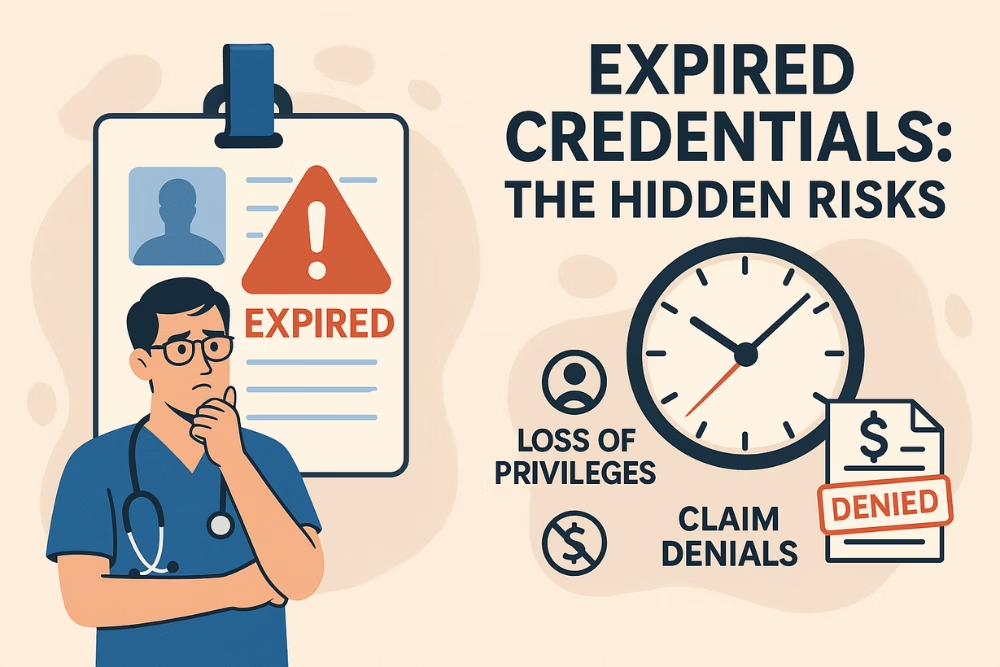The Credentialing Disconnect: Why “In-Network” Doesn’t Guarantee Payment
You’ve secured in-network status with major payers, ensuring patients have access to your services and anticipating timely reimbursements. Yet, In-network claims are being denied, delayed, or left unpaid. The culprit? Often, it’s not billing errors but credentialing oversights.
Credentialing is more than an administrative task; it’s a critical component of revenue cycle management (RCM). Without meticulous credentialing, even the most accurate billing processes can falter.
Common Credentialing Pitfalls Leading to Denied Claims
1. Outdated or Incorrect Provider Information
Minor discrepancies, such as an old address, incorrect National Provider Identifier (NPI), or expired license, can trigger claim denials. Payers require precise and current information to process claims successfully.
2. Missed Re-Credentialing Deadlines
Credentialing isn’t a one-time event. Providers typically need to be re-credentialed every two years. Missing these deadlines can result in temporary lapses in your in-network status, leading to denied claims for services rendered during that period.
3. Unrenewed Payer Contracts
Payer contracts have expiration dates. Failing to renew them on time can inadvertently place you out-of-network, causing significant revenue losses.
4. Lack of an Internal Tracking System
Without a robust system to monitor credentialing statuses, re-credentialing deadlines, and contract renewals, practices risk oversights that can lead to claim denials and revenue disruptions.
The Financial Impact of Credentialing Errors
Credentialing issues are a leading cause of claim denials. A study found that provider credentialing problems account for 42% of total denials, putting substantial revenue at risk.
Beyond immediate financial losses, these denials increase administrative burdens, delay payments, and can strain relationships with payers.
Proactive Credentialing: The Key to RCM Success
Effective credentialing involves:
-
Regularly updating provider information.
-
Monitoring re-credentialing and contract renewal deadlines.
-
Implementing internal tracking systems.
-
Ensuring compliance with payer-specific requirements.
By prioritizing credentialing, practices can reduce claim denials, streamline operations, and enhance financial stability.
Partner with eClinicAssist for Seamless Credentialing
Don’t let credentialing oversights jeopardize your revenue. eClinicAssist specializes in end-to-end RCM solutions, emphasizing accurate and timely credentialing. Our expertise ensures your credentialing processes are compliant, current, and optimized for maximum reimbursement.
Contact eClinicAssist today to safeguard your revenue and streamline your RCM processes.






